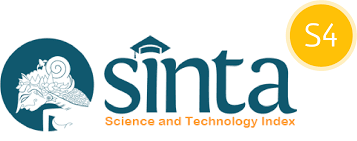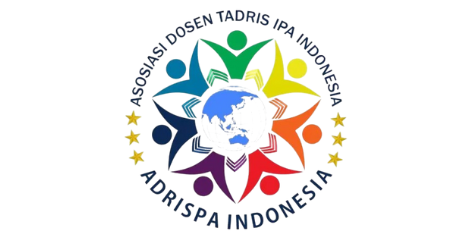PENGEMBANGAN MEDIA PEMBELAJARAN E-MAGAZINE BERBASIS ANDROID UNTUK MENINGKATKAN LITERASI SAINS PADA MATERI EKOLOGI DAN KEANEKARAGAMAN HAYATI KELAS VII MTsN 1 KOTA KEDIRI
DOI:
https://doi.org/10.35719/vektor.v6i1.181Keywords:
, Scientific Literacy, learning media, Literasi Sains, Media pembelajaran, Majalah Digital, E-magazineAbstract
Penelitian ini bertujuan untuk mengembangkan majalah digital berbasis android sebagai alternatif pembelajaran masa kini yang kreatif dan inovatif. Majalah digital berbasis android ini mempunyai tujuan untuk meningkatkan literasi sains siswa. Penelitian ini dilakukan di kelas 7 MTsN 1 Kota Kediri. Metode penelitian yang digunakan adalah Research and Development (R&D) dengan model ADDIE. Kevalidan media diperoleh dari hasil validasi ahli materi, media dan teknologi, dan ahli bahasa yang memeperoleh hasil masing- masing adalah 97,6%, 92,6% dan 90% yang dikategorikan sangat valid dan layak digunakan. Keefektifan media diukur berdasarkan hasil nilai pretest dan posttest. Hasil penelitian menunjukkan bahwa terdapat perbedaan yang signifikan. Kesimpulannya, E-magazine berbasis android efektif digunakan dalam pembelajaran IPA materi ekologi dan keanekaragaman hayati untuk meningkatkan literasi sains siswa.
Kata Kunci: Literasi Sains,Media pembelajaran, Majalah Digital
This study aims to develop an android-based digital magazine as an alternative to creative and innovative modern learning. This android-based digital magazine aims to improve students' scientific literacy. This study was conducted in class 7 of MTsN 1 Kediri City. The research method used is Research and Development (R&D) with the ADDIE model. The validity of the media was obtained from the validation results of material experts, media and technology, and language experts who obtained results of 97.6%, 92.6% and 90% respectively which were categorized as very valid and feasible to use. The effectiveness of the media was measured based on the results of the pretest and posttest scores. The results showed that there was a significant difference. In conclusion, android-based E-magazine is effective for use in science learning on ecology and biodiversity materials to improve students' scientific literacy.
Keywords: Learning media, E-magazine, Scientific Literacy
References
Febrianti, A. (2024). Pengembangan Media Pembelajaran E-Magazine Sebagai Sumber Belajar Biologi Pada Konsep Sistem Koordinasi Kelas Xi Sma / Ma.
Hanafi, H. F., & Samsudin, K. (2012). Mobile Learning Environment System (MLES): The case of Android-based learning application on undergraduates’ learning. International Journal of Advanced Computer Science and Applications (IJACSA), 3(3), 63–67. https://www.ijacsa.thesai.org
Khasinah, S., & Elviana. (2022). Need analysis dalam pengembangan kurikulum. Mudarrisuna: Media Kajian Pendidikan Agama Islam, 12(4), 837–850. https://doi.org/10.22373/jm.v12i4.17208
Mengo, S., Ndiung, S., & Midun, H. (2022). Integrating 21st-century skills in English material development: What do college students really need? Englisia: Journal of Language, Education, and Humanities, 9(2), 165-186. https://doi.org/10.22373/ej.v9i2.10889
Menzel, S., & Bögeholz, S. (2009). The loss of biodiversity as a challenge for sustainable development: How do pupils in Chile and Germany perceive resource dilemmas? Research in Science Education, 39, 429–447.https://doi.org/10.1007/s11165-008- 9087-8
Miraz, M. H., Khan, S., Bhuiyan, M., & Excell, P. (2014, July). Mobile Academy: A ubiquitous mobile learning (mLearning) platform. In Proceedings of the International Conference on eBusiness, eCommerce, eManagement, eLearning and eGovernance (IC5E 2014) (pp. 89–95). University of Greenwich, London, UK. URL: https://arxiv.org/abs/1708.04655
Novianti, V., & Riajanto, M. L. E. J. (2021). Analisis kesulitan siswa SMK dalam menyelesaikan soal materi trigonometri. JPMI – Jurnal Pembelajaran Matematika Inovatif, 4(1), 161–
https://doi.org/10.22460/jpmi.v4i1.161-168
Nur Alfiah, P., Edwita, E., & Supriatna, A. R. (2022). Pengembangan Media Pembelajaran E- Magazine Berbasis Pendekatan Saintifik Pada Pembelajaran IPA Materi Sifat-Sifat Cahaya Kelas IV SD. Efektor, 9(2), 230–241. https://doi.org/10.29407/e.v9i2.17067
Pusat Assesment Pendidikan (PISA Indonesia). (2024). https://pisa2025.id
Riduwan, A. (2007). Rumus dan Data Dalam Analisis Statistika untuk Penelitian. Bandung: Alfabeta.
Rohmad. (2017). Pengembangan Instrumen Evaluasi dan Penelitian. KALIMEDIA.
Savitri, I. A. (2019). Pengembangan Majalah Elektronik Berbasis Literasi Matematika Untuk Siswa SMP Kelas VII. Journal of Chemical Information and Modeling, 53(9), 1689–1699. http://repository.radenintan.ac.id/6215/
Slamet, Fatwa, A. (2020). Pemanfaatan Teknologi Pendidikan di Era New Normal. Indonesian Journal of Instructional Technology, 1(2).
https://journal.kurasinstitute.com/index.php/ijit/article/view/37
Wibowo, H. S. (2023). Pengembangan Teknologi Media Pembelajaran: Merancang Pengalaman Pembelajaran yang Inovatif dan Efektif. Tiram Media.
F. A. (2022). Model Penelitian Pengembangan ( R n D ). Institut Agama Islam Sunan Kalijaga Malang.
Stevenson, S. L., Watermeyer, K., Caggiano, G., Fulton, E. A., Ferrier, S., & Nicholson, E. (2021). Matching biodiversity indicators to policy needs. Conservation Biology, 35(2), 522–532. https://doi.org/10.1111/cobi.13575
Syam, S. (2024). Skripsi Pengembangan Media Pembelajaran E-majalah Berbasis Etnobotani :
Tanaman Obat Di Suku Tana Toraja Sebagai Sumber Belajar Biologi.
Syamsuar, S., & Reflianto, R. (2019). Pendidikan Dan Tantangan Pembelajaran Berbasis Teknologi Informasi Di Era Revolusi Industri 4.0. E-Tech : Jurnal Ilmiah Teknologi Pendidikan, 6(2). https://doi.org/10.24036/et.v2i2.101343
Yaşar, C. G., & Aslan, B. (2021). Curriculum theory: A review study. International Journal of
Curriculum and Instructional Studies, 11(2), 237-260. https://doi.10.31704/ijocis.2021.012
Downloads
Published
How to Cite
Issue
Section
License
Copyright (c) 2025 Lailatul Rahmawati Rahmawati, Ibrahim bin Said, Ummiy Fauziyah

This work is licensed under a Creative Commons Attribution-ShareAlike 4.0 International License.
Authors who publish with this journal agree to the following terms:
- Authors retain copyright and grant the journal right of first publication with the work simultaneously licensed under the terms of the CC BY-SA 4.0 License that allows others to share the work with an acknowledgment of the work's authorship and initial publication in this journal.
- Authors are able to enter into separate, additional contractual arrangements for the non-exclusive distribution of the journal's published version of the work (e.g., post it to an institutional repository or publish it in a book), with an acknowledgment of its initial publication in this journal.
- Authors are permitted and encouraged to post their work online (e.g., in institutional repositories or on their website) prior to and during the submission process, as it can lead to productive exchanges, as well as earlier and greater citation of published work.







